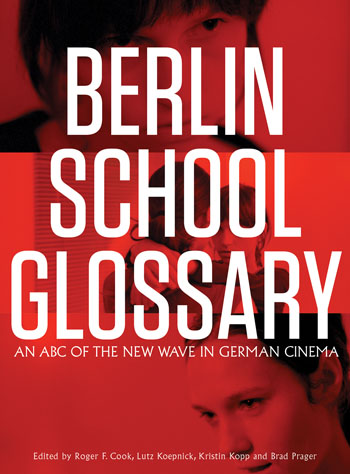Let’s begin this one with a few conversations. When both filmmakers were in London for the festival, Sight & Sound got Ben Rivers and Albert Serra to sit down together. A snippet:
BR: The kind of cinema we make is about practice. We’re used to these films, but if you’re not used to watching them, you can’t really expect people to click in to them. I sometimes think about the 1960s and the 70s, when Pasolini and Bergman would be in the multiplex, and you can’t imagine that happening now. At the same time there’s a lot of great cinema now; it’s just that people have to watch it at film festivals.
AS: A Pasolini film is really beautiful, but in some senses it’s less sophisticated than our films on all levels. Just in the edit, we have computers, we can do hundreds of things, we can control every minimum reverberation. It’s like tennis—a tennis player who is 600th in the world would beat every tennis player of the 80s and 90s. Same in football. Some films of Pasolini are really rough.
For McSweeney’s, Ross Simonini talks with Jesse Eisenberg about writing comedy; and for the Awl, Jenni Miller talks with Peaches about Peaches Does Herself—a conversation that wraps with a shout-out to Slava Tsukerman’s Liquid Sky (1982).
Noel Murray, Keith Phipps, Nathan Rabin, Tasha Robinson, and Scott Tobias discuss Ernst Lubitsch‘s Trouble in Paradise (1932). Also at the Dissolve: Mike D’Angelo reviews Costa-Gavras‘s Capital (“persuasive and detailed in its depiction of financial corruption, it’s also essentially a two-hour lecture, dry and academic”) and Ida Lupino‘s The Hitch-Hiker (1953), “as spare and muscular a picture as the 1950s ever produced.” From there, you may want to click over to Kim Morgan on cars and movies.
Vanity Fair‘s running an excerpt from Anjelica Huston‘s forthcoming memoir, A Story Lately Told: “Over the years, I’ve heard my father described as a Lothario, a drinker, a gambler, a man’s man, more interested in killing big game than in making movies. It is true that he was extravagant and opinionated. But Dad was complicated, self-educated for the most part, inquisitive, and well read. Not only women but men of all ages fell in love with my father, with that strange loyalty and forbearance men reserve for one another.”
At The Kind of Face You Hate, Glenn Kenny rereads H.P. Lovecraft‘s 1925 short story “The Horror at Red Hook.” And for Bookforum, Tom Carson reviews James Wolcott‘s new collection, Critical Mass: Four Decades of Essays, Reviews, Hand Grenades, and Hurrahs.
“Is Portuguese Cinema in Danger, or Does It Just Reflect a Country in Turmoil?” Vanessa Erazo, noting that Portuguese films are thriving on the festival circuit even as production has declined steeply since 2010, poses the question—sparked by a recent op-ed penned by Miguel Gomes and his producer Luís Urbano—at Criticwire. Relatedly, for Film International, Perle Petit sets Gomes’s Tabu (2012) next to F.W. Murnau‘s Tabu, a Story of the South Seas (1931).
Three anonymous Chiseler contributors riff on Nadia Sibirskaia’s face in Dimitri Kirsanoff’s Menilmontant (1926).
IN OTHER NEWS
“Veteran film critic and programmer Dave Kehr will become the new Adjunct Curator in the Museum of Modern Art’s Film department,” reports Variety‘s Scott Foundas. “Kehr’s appointment comes nearly one year after the departure of longtime MoMA staffer Laurence Kardish, who retired after 44 years, 13 of them as the Film department’s Senior Curator. In addition to creating exhibitions for MoMA’s New York cinemas, Kehr will be charged with making the museum’s extensive film archive more accessible to outside venues, particularly via the digital realm.” For the New York Times, Allan Kozinn confirms that this move spells the end of Kehr’s weekly column home video reviews. “His final column will appear Nov. 10.” And he’ll take up his new position at MoMA on December 1.
The AP reports that “the Stockholm Film Festival visionary award for 2013 will go to British filmmaker Peter Greenaway, for challenging ‘the spectator like a true modern visionary.'”
“AFI FEST today announced the remaining sections and films that will screen in the festival’s World Cinema, American Independents, Breakthrough, Midnight, Cinema’s Legacy and Presentations programs. This year’s program includes the return of several filmmakers to AFI FEST including Closed Curtain‘s Jafar Panahi; Moebius‘ Kim Ki-duk; Our Sunhi‘s Hong Sang-soo; Tom at the Farm‘s Xavier Dolan, and We Are the Best!‘s Lukas Moodysson.”
GOINGS ON
New York. MoMA’s series The Berlin School: Films from the Berliner Schule won’t be opening until November 20, but I do want to note that Christoph Hochhäusler, who’ll be there, not only with two films, Falscher Bekenner (I Am Guilty, 2005) and Unter dir die Stadt (The City Below, 2010), but also to chat with Benjamin Heisenberg (Der Räuber; The Robber, 2010) about the movement and their essential journal, Revolver, has a post with a few items you’ll want to know about now if you’re planning to catch a few or more of these films. First, you can preview the catalog. Second, though there’s no direct link for it yet, there’ll be a two-day conference at Deutsches Haus in New York; Hochhäusler and Heisenberg, Thomas Arslan, Ulrich Köhler, Christian Petzold, Angela Schanelec, and Reinhold Vorschneider will be taking part. And third, three newish books for background on all this: Marco Abel‘s The Counter-Cinema of the Berlin School; the Berlin School Glossary, edited by Roger F. Cook, Lutz Koepnick, Kristin Kopp, and Brad Prager; and Jaimey Fisher’s Christian Petzold.
“According to many on the ground, including the local presses,” notes Bryan Tap at Cigarettes & Red Vines, “Paul Thomas Anderson will be attending the Austin Film Festival this coming weekend to moderate a Q&A with long-time filmmaking idol and friend Jonathan Demme.”
Peter Nellhaus takes a first look at the schedule of the Starz Denver Film Festival (November 6 through 17).
IN THE WORKS
“After the massive undertaking that was Cloud Atlas, what’s next for Tom Tykwer?” asks Cain Rodriguez at the Playlist. “Well, first he’ll shoot A Hologram for a King with Tom Hanks, and once that’s done, he’ll tackle a 12-part German language TV series entitled Babylon Berlin. Screendaily reveals it will based on the books of Volker Kutscher, and focus ‘on the figure of Inspector Gereon Rath who hails from Cologne and arrives in the Berlin of 1920s, the epicentre of political and social changes of those years.'”
Werner Herzog‘s Queen of the Desert, with Nicole Kidman playing explorer and archeologist Gertrude Bell, is coming together. Whether or not Damian Lewis joins the cast, Deadline‘s Mike Fleming Jr. reports that production begins in December.
There might be a Beetlejuice 2, Tim Burton might direct it, and Michael Keaton might reprise his role. TheWrap reports.
“Leonardo DiCaprio is set to produce and potentially star in a film adaptation of the upcoming crime novel Blood on the Snow by Norwegian author Jo Nesbo.” Maya Rhodan has more for Time.
80 MINUTES
Viewing (79’52”). Conan O’Brien does some serious jibber-jabbering with Mel Brooks.
Listening (74’56”). New Cinephiliacs! Peter Labuza‘s guest this time around is cinephile and archivist Craig Simpson, who talks about, among other things, Wim Wenders’s Paris, Texas (1984).
For news and tips throughout the day every day, follow @KeyframeDaily on Twitter and/or the RSS feed. Get Keyframe Daily in your inbox by signing in at fandor.com/daily.






